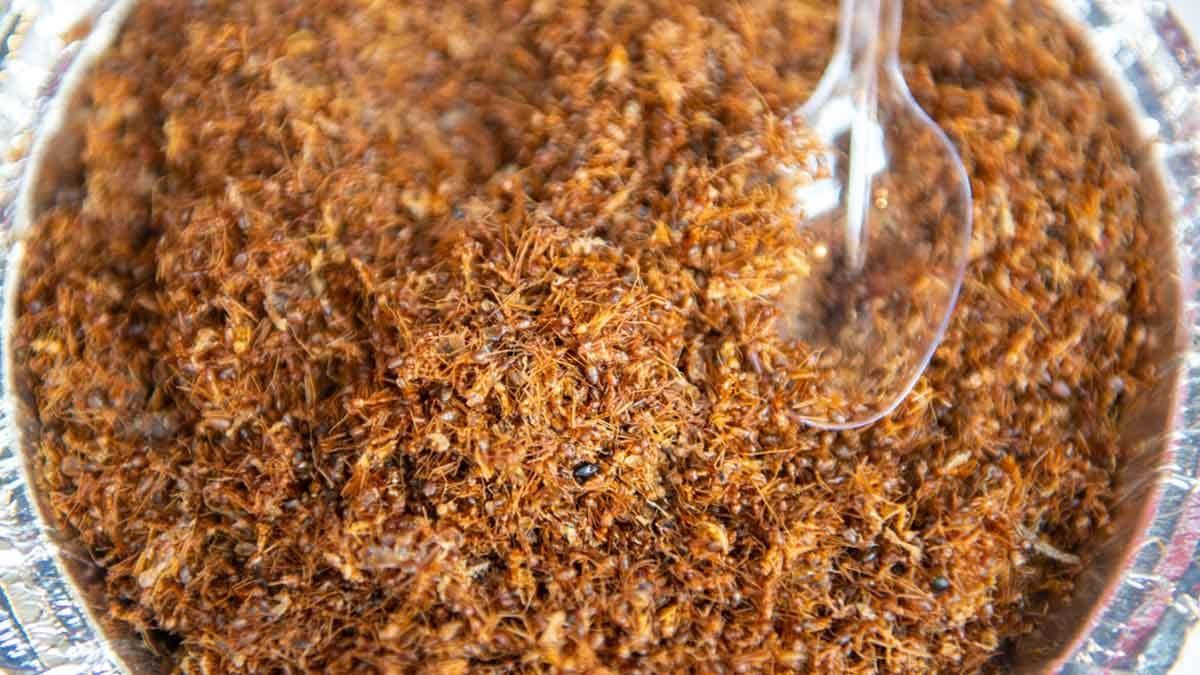
The Similipal kai chutney, a savory delicacy made with red weaver ants by the tribal people of Odisha’s Mayurbhanj district, has officially been awarded a Geographical Indication (GI) tag as of January 2, 2024. This recognition highlights not only the unique culinary tradition of the region but also the nutritional and medicinal significance of the chutney, which has been an integral part of the diet of local tribes for generations.
Red weaver ants, known locally as *kai pimpudi*, are highly valued in Mayurbhanj for their rich nutritional content and healing properties. Scientists from the Odisha University of Agriculture and Technology (OUAT), Bhubaneswar, have studied these ants and found them to be packed with valuable nutrients such as proteins, calcium, zinc, vitamin B-12, iron, magnesium, potassium, sodium, copper, and essential amino acids. These nutrients play a vital role in boosting the immune system, preventing diseases, and promoting overall health.
For the indigenous people of Mayurbhanj, the collection of these ants is more than just a culinary practice; it is a way of life. Many tribal families venture into the nearby forests to gather the ants and their eggs, sustaining themselves by selling live ants and the chutney made from them at local markets and fairs. This practice supports the livelihoods of around 500 tribal families, who sell the live ants for approximately Rs 400-600 per kilogram, while the chutney itself fetches up to Rs 1,000 per kilogram, thanks to its high demand.
The preparation of *Similipal kai chutney* is both simple and traditional. The red ants, collected from their nests, are cleaned thoroughly and then mixed with salt, ginger, garlic, and chilies to create a spicy and pungent chutney with a distinctive sour taste. This flavorful chutney is not just a food item but also serves as a natural remedy for various health issues. Tribal people also drink soup made from these ants, which is believed to aid in digestion and improve overall health. According to experts like Padhial and Mohanty, the consumption of red weaver ants can help cure ailments such as stomach aches, dysentery, cold, and fever. The ants are also seen as a natural source of protection for the tribes, contributing to their health and safety.
Beyond its medicinal uses, the chutney is known to improve appetite, enhance eyesight, and support brain and nervous system development. Regular consumption of red weaver ants is also said to help combat conditions like depression, fatigue, and memory loss. The nutritional and medicinal benefits of this indigenous food are increasingly being recognized, both within and beyond the tribal communities of Mayurbhanj.
The GI tag for Similipal kai chutney also holds broader significance for the region. As it gains more attention, it will likely boost the image of the Similipal Tiger Reserve, a UNESCO World Network of Biosphere Reserve since 2009. This protected area, known for its rich biodiversity of flora and fauna, will further benefit from the recognition of this unique tribal delicacy, which reflects the harmonious relationship between the local people and their natural environment.
In essence, the GI tag for *Similipal kai chutney* is not just a marker of culinary excellence, but a celebration of the sustainable practices, traditional knowledge, and cultural heritage of the indigenous communities of Odisha. As the world comes to appreciate this distinctive and nutritious chutney, it will continue to stand as a testament to the resilience and resourcefulness of the tribal people of Mayurbhanj.






